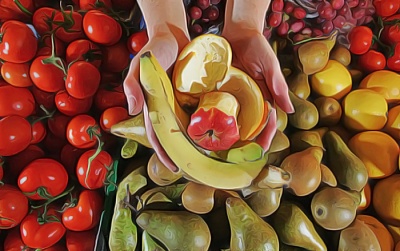France bans supermarket food waste
French supermarkets will no longer be able to destroy or dispose of unused edible food, after the French National Assembly unanimously passed a new amendment to a green energy law yesterday (Thursday 21 May).

The amendment to the proposed energy transition to green growth law (due to voted on on 26 May) will require supermarkets over 400 square metres in size to enter into formal agreements with food redistribution charities by July 2016. Any food past its sell by date should also be sent for composting, anaerobic digestion or for use as animal feed – rather than disposal.
Those who do not comply will be liable for penalties including fines of up to €75,000 (£53,000) or two years imprisonment.
It is hoped that the amendment will reduce food waste arisings and prevent supermarkets from destroying edible food. It is reported to be common practice for supermarkets to pour bleach into their bins to destroy the food and prevent its illegal removal, a practice that Guillaume Garot, the former Minister for Food who sponsored the bill in government, called “scandalous”.
As part of the amendment, companies will also be able to contribute to their social and environmental responsibility by providing lessons to school children and smaller businesses on fighting food waste.
‘More to do’ in combating food waste in France
The amendment passed by the National Assembly is the most recent to be added to the bill, as France continues to increase it focus on food waste.
In February, senators voted to add an amendment removing best before dates on non-perishable foods.
However, Garot said that “there remains much to do” following the vote, including the mobilisation of local communities, the training of professionals and consumer awareness.
It is hoped that these actions will help the country achieve the government’s target of halving the nation’s food waste by 2025.
Official figures suggest that the average French person throws away 20-30kg of food per year, which adds up to a total cost of up to €20 billion to the national economy.
Law focusing on the wrong people
Although the amendment has been welcomed by many, the French Federation of Commerce and Distribution (FCD), however, has criticised the plan.
Jacques Creyssel, head of the group, said: “The law is wrong in both target and intent.
"The big stores represent only five per cent of food waste but now have these new obligations.
"They are already the pre-eminent food donors, with more than 4,500 stores having signed agreements with aid groups.
"We will meet in emergency meetings to examine the consequences of these provisions."
In the UK, food redistribution charity FareShare has said that the move is an "interesting development in the debate around food waste", especially as the "majority of surplus food is further up the supply chain".
A spokesperson for the charity added: "The French food industry, government and associated charities have already made huge inroads in tapping food further up the supply chain, amongst manufacturers, where the majority of surplus occurs.
"While government intervention can be a positive step in trying to achieve waste minimisation and a fairer system that promotes surplus redistribution in the food industry, we believe that the best results are obtained when food companies realise the potential and the benefits linked to redistribution. In order to successfully divert surplus food from waste, food companies across the whole supply chain must establish processes and systems that anticipate and identify surplus food within their operations and make it available for charities such as FareShare. This approach brings about significant environmental, social and economic benefits."
Find out more about the amendment to the energy bill, or learn more about how French supermarkets are trying to reduce food waste.










